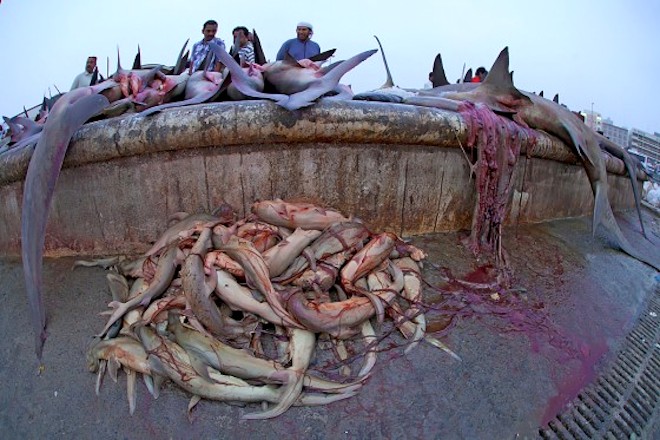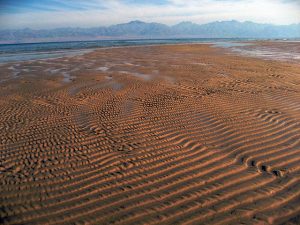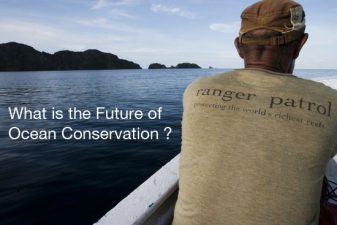
Red sea sharks. Photo by Julia Spaet- KAUST PhD student researching shark populations in the Red Sea.
The United Arab Emirates has passed resolution 500 in an effort to curb shark finning and protect endangered species. Currently a hub for the shark trade, the United Arab Emirates (the UAE) will implement the new laws on September 1, 2014.
The new laws prohibit fishermen from catching sharks within five nautical miles off shore, and within three nautical miles of the islands scattered throughout the UAE. Also, any animals protected by the International Trade in Endangered Species of Wild Fauna and Flora (CITES).
This includes three species of hammerhead sharks.
While the new laws prohibit the export of sharks caught in UAE waters, whether they are smoked, fresh, dried, salted, frozen or canned, imports are acceptable and re-export of some shark species will also be permitted.
Although it could have been more, it is a positive step,” filmmaker and conservationist Jonathan Ali Khan told The National, adding the resolution defines the issue of shark fishing and trade more clearly and is “an important move forward”.
Related: Dubai marine life at risk after devastating shark catch
Fishermen will still be able to import sharks from Oman and Yemen, which is currently common practice according to The National, but detailed paperwork, which includes a certificate or origin, the shark’s scientific name, and a health certificate, will be required before those sharks can be exported to other countries.
Additional certification issued by the Ministry of Environment and Water will be required to trade sharks protected by CITES.
This is designed to protect endangered species and prevent finning, but there is some concern over whether customs officials and other authorities will be able to identify the sharks that need protection.
“The numbers of landed sharks from UAE waters are not the main issue, it is the re-export,” Ali Khan told The National.
“Will sharks coming from Oman and other countries be slowed down because of the paperwork? That is the real question.”
Read more on animal trafficking:
Ofir is stopping poaching in Cameroon
Dubai Porsche driver walks cheetah on a leash
Live Baby Leopard Found in Suitcase En Route to Dubai
Injured Cheetah Discovered on the Streets of Abu Dhabi




Comments are closed.